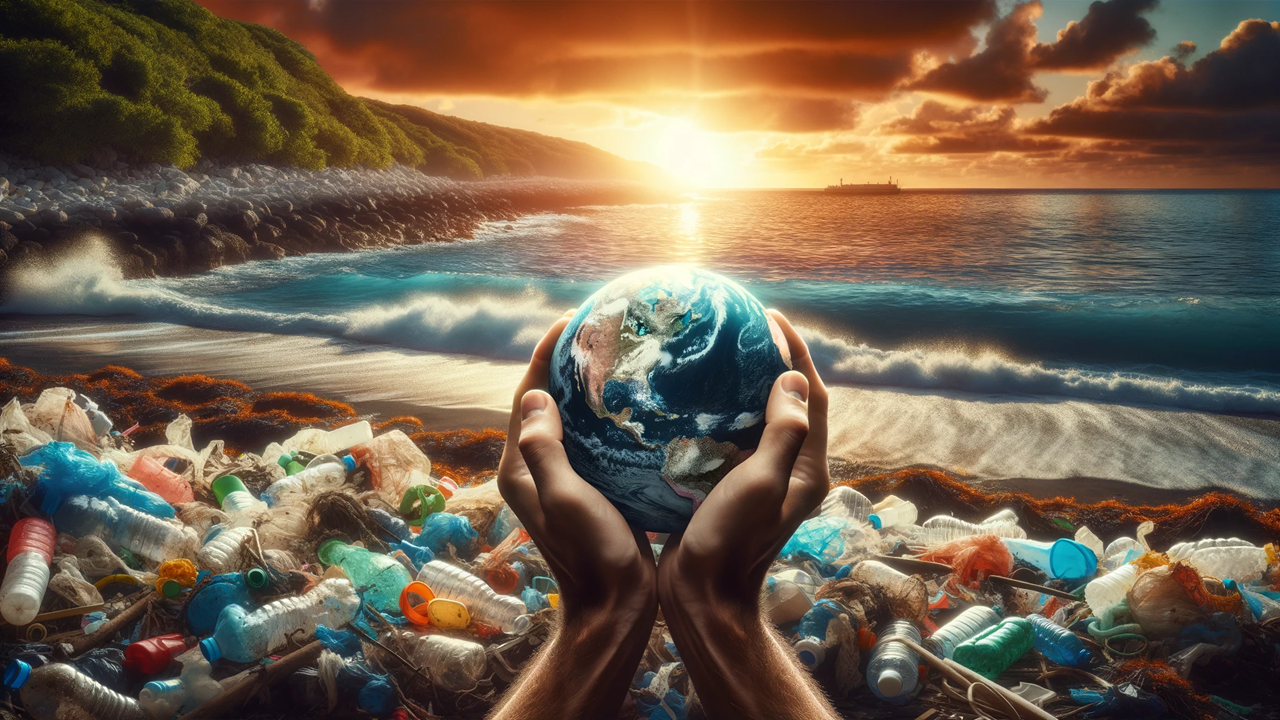Urban India Turns the Tide on Plastic Waste with Swachh Bharat Innovations
India’s plastic waste transformation is no longer limited to government policy—it is a nationwide, multi-stakeholder movement.

- Country:
- India
India’s urban centers are no longer merely coping with the growing menace of plastic waste—they are combating it head-on with innovative, inclusive, and sustainable approaches under the Swachh Bharat Mission-Urban (SBM-U). Through a combination of cutting-edge technology, robust citizen participation, and a steadfast commitment to the circular economy, urban India is transforming plastic waste into an opportunity for systemic change.
From Plastic Problem to Sustainable Solutions
Plastic, once celebrated for its convenience, has become a symbol of pollution and environmental degradation. However, SBM-U is rewriting this narrative. Guided by the principles of Swabhav (habit), Swachhata (cleanliness), and Sanskar (values), the mission has ignited a wave of grassroots innovations focused on Reuse, Recycling, and Recovery (RRR)—the three pillars of India’s circular waste economy.
Urban Local Bodies (ULBs) across the country are leveraging infrastructure upgrades, digital innovations, and behavioural change campaigns to create plastic-free communities. Cities are piloting and scaling creative interventions that not only curb pollution but generate economic value, jobs, and environmental resilience.
Kamalpur Leads with Compostable Alternatives in Tripura
In a bold step toward replacing single-use plastics, Kamalpur Nagar Panchayat in Tripura has introduced compostable bags made from PBAT (Polybutylene Adipate Terephthalate)—a biodegradable polymer certified by the Central Institute of Plastics Engineering and Technology (CIPET). These eco-friendly bags, free from toxic chemicals, decompose within 180 days, offering a safe and sustainable replacement for conventional plastic bags.
Offered at an affordable ₹145/kg (wholesale) and ₹160/kg (retail), the initiative is economically viable and widely accessible. Local authorities are also fostering community involvement through educational drives and awareness campaigns to increase adoption and enhance environmental responsibility.
Trichy’s Market Campaign Cuts Down Single-Use Plastics
Despite the nationwide ban on Single-Use Plastics (SUPs), market vendors often struggle to transition to alternatives. Addressing this challenge, Trichy City Corporation collaborated with GIZ India’s Circular Waste Solutions project to implement a market-focused plastic reduction initiative in 2022.
The intervention targeted farmers’ markets in Tennur, K.K. Nagar, and Woraiyur, reaching over 220 vendors. Vendors were educated about the environmental harm of SUPs and encouraged to use sustainable options. The campaign was complemented by the "Thunippai Thiruvizhai" (Cloth Bag Festival) to promote cloth bag usage among customers. The impact was impressive:
-
Tennur reduced 2,200 kg of SUPs in one year
-
K.K. Nagar avoided 620 kg in just four months
-
Woraiyur cut down 300 kg in six months
Kedarnath’s Digital Deposit Refund System Rewards Recycling
To address plastic litter in ecologically sensitive pilgrimage areas, Kedarnath launched a Digital Deposit Refund System (DRS) in May 2022. The system charges a refundable ₹10 deposit on every plastic bottle and multi-layered plastic (MLP) item sold, tracked via QR codes issued to retailers. Shoppers can return these items at collection centers or Reverse Vending Machines (RVMs) to reclaim their deposits.
This initiative, later extended to Gangotri, Yamunotri, and Badrinath, has:
-
Recycled over 20 lakh plastic bottles
-
Prevented 66 metric tonnes of CO₂ emissions
-
Created 110+ jobs, particularly benefiting informal waste workers whose earnings rose by 37.5%
The DRS not only fosters recycling but also promotes financial inclusion and sustainable tourism practices in the fragile Himalayan ecosystem.
Buy-Back Scheme for Milk Pouches in Andaman and Nicobar Islands
In the Andaman and Nicobar Islands, authorities introduced a buy-back system to recover used plastic milk pouches. In partnership with ANIIDCO and SVPMC, consumers could exchange empty pouches for rewards such as fresh milk or discounts, encouraging proper disposal and recycling.
This approach, reinforced through awareness campaigns, boosted community engagement and created a culture of sustainability. By November 2024, the program:
-
Collected 17,600 milk pouches
-
Recycled them into useful products
-
Distributed 352 liters of milk as rewards
This simple yet impactful initiative combines economic incentives with environmental goals to close the loop on plastic consumption.
Patiala’s Recycling Facility Converts Plastic Waste into Chipboards
In Patiala, Punjab, a Plastic Recycling Facility (PRF) established under Corporate Social Responsibility (CSR) funding is turning low-value MLP waste into durable chipboards. Using advanced hot and cold pressing technology, this process converts shredded plastic flakes into high-strength boards ideal for furniture, roofing, and temporary structures.
The PRF processes up to 10 tonnes of MLP waste per day, generating 75–100 chipboards daily. These chipboards are:
-
Water- and termite-resistant
-
An eco-friendly alternative to plywood
-
Actively used in infrastructure and industrial sectors
This facility demonstrates how plastic waste can be transformed into valuable construction materials, contributing to a circular and resource-efficient economy.
A Nationwide Movement for Change
India’s plastic waste transformation is no longer limited to government policy—it is a nationwide, multi-stakeholder movement. State governments, ULBs, start-ups, civil society groups, and ordinary citizens are all playing crucial roles in combating plastic pollution.
Through technological innovation, behavioural change, financial incentives, and strong public engagement, the Swachh Bharat Mission-Urban is not just managing waste—it is creating a resilient future for India’s cities.










